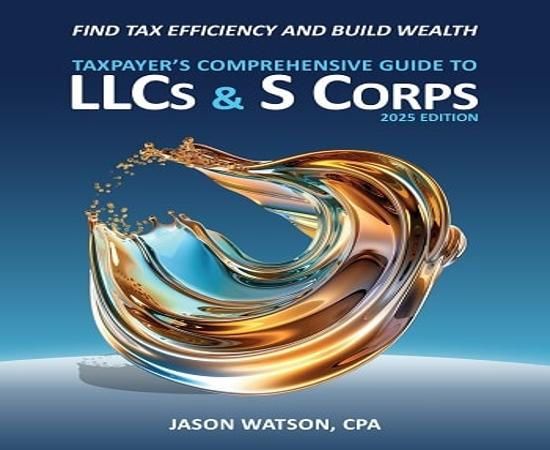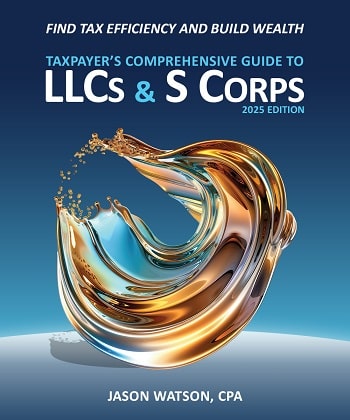The Ultimate taxpayer’s comprehensive guide to LLCs and S Corps
Are you a taxpayer looking to gain a better understanding of the intricacies of LLCs and S Corps? Look no further than the taxpayer’s comprehensive guide. Authored by Jason Watson, this comprehensive guide is a valuable resource for individuals seeking clear and concise information on these business structures. In this article, we will delve into the benefits of LLCs and S Corps, address common FAQs, and provide an overview of this essential guide.
Benefits of LLCs and S Corps
LLCs and S Corps are popular business structures for a variety of reasons. One key benefit is limited liability protection, which helps shield personal assets from business debts and liabilities. Additionally, both LLCs and S Corps offer pass-through taxation, meaning that profits and losses are reported on the individual owner’s tax return.
Furthermore, these entities provide flexibility in terms of management and ownership structures. LLCs allow for a more informal management style, while S Corps have stricter ownership guidelines. Each structure has its own unique advantages, making it essential for taxpayers to understand the nuances of each.
Frequently Asked Questions
1. What is the difference between an LLC and an S Corp?
An LLC is a more flexible business structure that allows for a less formal management style, while an S Corp has stricter ownership requirements and is subject to certain IRS regulations.
2. How do I choose between an LLC and an S Corp for my business?
The decision between an LLC and an S Corp depends on various factors, including the size of your business, your long-term goals, and tax considerations. Consulting with a tax professional can help you make an informed decision.
3. Can I convert my LLC to an S Corp?
Yes, it is possible to convert an LLC to an S Corp by filing Form 2553 with the IRS. However, there are specific eligibility requirements that must be met in order to make this transition.
4. What are the tax implications of choosing an S Corp over an LLC?
S Corps are subject to stricter IRS regulations, including requirements for shareholder salaries and profit distributions. Understanding these tax implications is crucial for business owners considering this structure.
5. How can the taxpayer’s comprehensive guide help me navigate LLCs and S Corps?
The taxpayer’s comprehensive guide provides detailed explanations of the benefits and considerations of LLCs and S Corps, helping taxpayers make informed decisions about their business structures. With clear, concise language, this guide is a valuable resource for individuals at any stage of their entrepreneurial journey.
Conclusion
In conclusion, the Taxpayer’s Comprehensive Guide to LLCs and S Corps is an invaluable resource for taxpayers seeking to navigate the complexities of these business structures. By understanding the benefits, differences, and tax implications of LLCs and S Corps, individuals can make informed decisions that align with their business goals. Whether you are a seasoned entrepreneur or just starting out, this guide by Jason Watson is a must-have tool for building a solid foundation for your business ventures.


